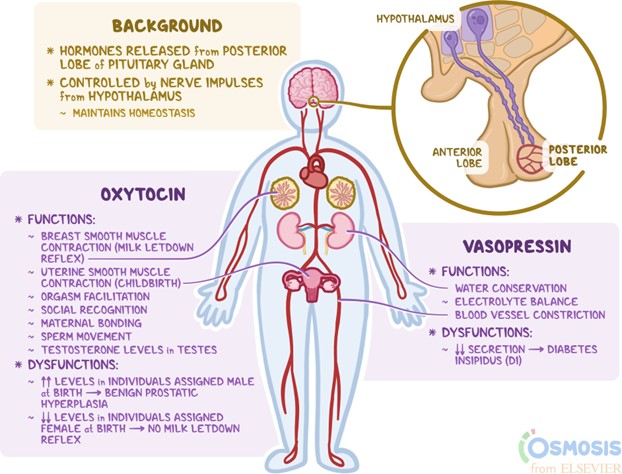Innate defenses counter specific disease-causing agents, whereas adaptive defenses include mechanical and chemical barriers:
True
False
The Correct Answer is B
Innate defenses counter specific disease-causing agents, whereas adaptive defenses include mechanical and chemical barriers.
Choice A is wrong because it confuses the two types of defenses.
Innate defenses are nonspecific and include physical barriers such as the skin, molecules that are toxic to invaders, and phagocytic cells that ingest invaders.
Adaptive defenses are specific and are activated by the innate immune system.
They involve the production of antibodies and specialized cells that recognize and eliminate specific pathogens.
Normal ranges are not applicable in this question as it is about the definitions of innate and adaptive defenses.
Nursing Test Bank
Naxlex Comprehensive Predictor Exams
Related Questions
Correct Answer is C
Explanation
This is because it is an example of a positive feedback loop, which amplifies the change and moves the system away from its normal state.
A negative feedback loop is a mechanism that reverses a deviation from the set point and maintains homeostasis.
Choice A is wrong because increasing heart rate and force of contraction when blood pressure falls is a negative feedback loop that restores blood pressure to normal.
Choice B is wrong because secreting insulin after a meal to return blood sugar concentration toward normal is a negative feedback loop that regulates glucose levels.
Choice D is wrong because shivering when body temperature falls below normal is a negative feedback loop that increases heat production and raises body temperature.
Normal ranges for blood pressure are 90/60 mmHg to 120/80 mmHg, for blood glucose, are 70 mg/dL to 140 mg/dL, and for body temperature are 36.5°C to 37.5°C or 97.7°F to 99.5°F.
Correct Answer is B
Explanation
Hormones that the posterior pituitary secretes are synthesized in the hypothalamus.

They are made by neurons in the hypothalamus and stored and released by the posterior lobe of the pituitary gland, a small organ at the base of the brain.
They regulate water balance, blood pressure, and uterine contraction in the body.
Choice A is wrong because the anterior pituitary synthesizes its own hormones, such as growth hormone, thyroid-stimulating hormone, and prolactin.
Choice C is wrong because the thalamus is not involved in hormone synthesis or secretion. It is a part of the brain that relays sensory and motor signals to the cerebral cortex.
Choice D is wrong because the posterior pituitary does not synthesize hormones. It only stores and releases hormones made by the hypothalamus.
Whether you are a student looking to ace your exams or a practicing nurse seeking to enhance your expertise , our nursing education contents will empower you with the confidence and competence to make a difference in the lives of patients and become a respected leader in the healthcare field.
Visit Naxlex, invest in your future and unlock endless possibilities with our unparalleled nursing education contents today
Report Wrong Answer on the Current Question
Do you disagree with the answer? If yes, what is your expected answer? Explain.
Kindly be descriptive with the issue you are facing.
